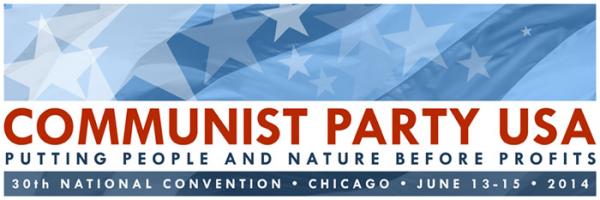
Submitted by Luis Rivas, Southern California Young Communist League
It has been said before but it bares repeating, as many important things do.
We are in dire times, and as history shows during great economic downturns or disasters, the most affected, those that have been at the lowest position in society’s socioeconomic class ladder are further pushed to the margins of society. This is the working poor.
Of course racial, ethnic, ability, gender and other forms of identity are factors. For example, the transgender community has been under constant life-threatening attacks, even prior to the Stonewall Uprising of 1969 — mainly because of a heteronormative, capitalist patriarchal system of domination. But I say the intersection of class, of a person’s standing in relation to the economy, has the most profound affect on the person. So any person belonging to an oppressed community, such as trans, immigrant, African American, Latino, will have divisions within it based on class. In other words, the most affluent of that community, although totally marginalized or oppressed, suffers less than the working poor of said community.
Knowing this, social justice organizations must defend the most extremely oppressed. Nowhere is this more obvious than in poor communities of color in Los Angeles, including Skid Row, one of the nation’s homeless capitals, where we in the Southern California Young Communist League happen to call home. We stay off of Seventh and San Pedro Street just two blocks down the street from the heart of Skid Row.
Skid Row is understood to be west of Main Street, south of Third Street, west of Alameda Street and north of Seventh Street. It is also the most concentrated area of homeless advocacy centers, shelters and resources: a contradiction that poignantly mirrors the vast problems of capitalism.
According to the 2013 Annual Homeless Assessment Report(PDF) to Congress, there are 53,798 homeless people in Los Angeles County, which is second only to New York City with 64,060. According to the same report, California accounted for more than 22 percent of the homeless population in the U.S. that year.
And this is the reality for thousands of people in a state that is the world’s eighth largest economy, according to a study by the Center for Continuing Study of the California Economy.
When we talk about homelessness, it should be understood that we also speak about the need for affordable housing, the most practical solution to homelessness. While emergency shelters, rehabilitative therapy, drug, alcohol and mental health care are also of the utmost importance, continuing to allow homeless advocacy resource centers and non-profits to maintain programs that do not contextualize the problems of poverty and homelessness within capitalism, leads to little-to-no fundamental improvement. What we need is immediate affordable housing, stable and accessible rent and a protracted fight against gentrification, as one of the leading causes of rising rents.
Currently, as published in the LA Times, there are movements for more affordable housing, such as SB 391 which promises to fund thousands of low-to-moderate-income housing. But instead of a federal or state program, the Senate Bill would inconvenience homeowners with a $75 fee — which isn’t that troubling. Nonetheless, it ideally should be zero. The federal government and California, especially since we have a surplus, should be funding these programs. This type of bill further antagonizes the relationship between the home-owners and the poor working class. The bill is currently at the Assembly.
Additionally, with the systematic onslaught on the homeless community, an immediate need is protection and respect of their civil rights. Many homeless residents are harassed by police or local safety officers, known for their purple, red and yellow uniform T-Shirts. The property of homeless residents have been often stolen and thrown away. They get brutalized, thrown in jail for vagrancy, loitering and other offensives that are nearly inescapable as a person without stable shelter and housing.
This is why the Western Regional Advocacy Project, and their local organization Los Angeles Community Action Network, is leading the fight for a homeless bill of rights (PDF) which includes protection of homeless people’s right to move freely, right to access public hygiene facilities, the right to occupy a legally parked vehicle, etc.
As a communist party, we have to be defenders of those that society views as second-class citizens or even less than, the systematically dehumanized, the cogs of a machine that has no value-extracting use for them.
Throughout world history, communists have fought heroically against exploitation, repression and oppression, in the countryside or in the metropole. We in the U.S. have and must continue in this spirit, not just in the labor movement or in the electoral arena alone.
While surely there is a need for a committed engagement with traditionally organized labor, especially in the AFL-CIO’s recent move on fighting for immigration reform and their stance on more ecologically-sound jobs, even more focus should be given on unorganized and non-traditional labor, such as the fast food workers who are fighting for $15 minimum wage, known as the Fight for 15, or the carwash workers, such as the Clean Carwash Campaign here in Santa Monica, a project of the United Steelworkers Union.
In addition to unorganized labor, we should put at our focus the fight for just immigration reform devoid of military influence like the federal DREAM Act. Moreover, we must obstruct all attempts by Republicans or Democrats to fund further militarization of the U.S.-Mexico border.
After All, immigration is one of the cornerstones of capitalist economic survivability. Our country was built on indigenous genocide, chattel African slavery and the steady stream of cheap surplus labor of immigrants and undocumented immigrants (from the Chinese, Filipino, Mexican, Chicano, Puerto Rican, Salvadoran and other exploited ethnic groups).
To work on immigration reform without tackling the issues of capitalism and imperialism is a disservice to the international proletariat, to the working people of the world.
In Occupy the Economy: Challenging Capitalism by acclaimed Marxist economist and author Richard Wolff, he argues for a federal jobs program, similar to President Franklin Roosevelt’s programs that helped the U.S. escape the Great Depression. We believe, as most comrades do, that the private sector has not and will not create enough jobs, nor good ones at that. It has to be a national movement, and the type of jobs must be focused first and foremost on environmentally sound policies and practices.
In addition to a federal jobs program focused primarily on environmentally progressive policies, there has to be a consistent and well-disciplined educational movement coming from the YCL and the CPUSA on deconstructing capitalist ideology and cultural hegemony. Because, as history has shown, and as Lenin himself is so endlessly quoted from What is to be Done?, “Without revolutionary theory there can be no revolutionary movement.” Any social movement without a revolutionary theory will only perpetuate reformism, i.e. social democracy.
One such example comes from Wolff’s book. The middle-class. He makes the statement that we must challenge this idea of the middle-class, which does a huge disservice to class solidarity and Marxism. That is precisely why a more robust, well-organized and consistent revolutionary education movement is necessary.
In spite of Wolff’s shortcomings, and there are many, such as praising Occupy Wall Street as a nearly-homogenous national movement, he is correct in the need and urgency in fighting capitalism and climate change by merging the two movements into one strategy.
Lastly, we all must understand that any reform absent from a revolutionary strategy is criminal, for it inadvertently defends capitalism and social democracy. Reform is only good in a revolutionary strategy.
The need for revolutionary communist and socialist education that challenges capitalism is at the utmost importance. We need more youth programs, local, regional and national classes, bold campaigns led by communists, direct actions — all without giving up strategic contacts and alliances in labor and electoral politics.
And as we go out, whether into the street, the union hall, the college campus or the community, let us remember the worlds of Che: “Be realistic, demand the impossible!”
The views and opinions expressed in the Convention Discussion are those of the author alone. The Communist Party is publishing these views as a service to encourage discussion and debate. Those views do not necessarily reflect the views of the Communist Party, its leading bodies or staff members. The CPUSA Constitution, Program, and all its existing policies remain in effect during the Convention discussion period and during the Convention.
For details about the convention, visit the Convention homepage
To contribute to the discussion, visit the Convention Discussion webpage
CONVENTION DISCUSSION
30th National Convention, Communist Party USA
Chicago | June 13-15, 2014


 Join Now
Join Now